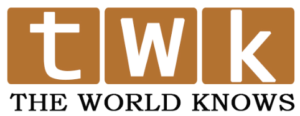When venturing into the world of currency trading, one of the most critical decisions a trader will make is choosing the right forex broker. The broker acts as the intermediary between traders and the forex market, facilitating transactions and providing access to trading platforms. With numerous brokers vying for attention, it can be overwhelming to determine which one is the best fit. This article will outline key factors that traders should consider when selecting a currency trading broker, ensuring a well-informed decision.
Regulation and Trustworthiness: The first factor to assess is the broker’s regulatory status and overall trustworthiness. Traders should prioritize brokers regulated by reputable financial authorities such as the Financial Conduct Authority (FCA) in the UK, the National Futures Association (NFA) in the US, or the Australian Securities and Investments Commission (ASIC) in Australia. Regulatory oversight ensures that brokers operate in compliance with industry standards, offering a certain level of protection to traders’ funds.
Trading Platform: A robust and user-friendly trading platform is essential for executing trades efficiently. Traders should evaluate the trading platform provided by a forex broker, considering factors such as speed, stability, charting capabilities, and order execution. A reliable platform should offer real-time market data, advanced charting tools, and a seamless trading experience. Demo accounts provided by brokers can be useful for testing the platform’s features and functionality before committing real funds.
Product Range: Currency trading brokers differ in the range of products they offer. While forex pairs are the primary focus, some brokers also provide access to other markets such as commodities, stocks, or indices. Traders should assess their trading preferences and consider whether they want to diversify their portfolio beyond forex. Brokers with a wider product range can offer opportunities to explore different markets and capitalize on various trading strategies.
Trading Costs: Trading costs directly impact profitability, and traders should carefully evaluate the fee structure of potential brokers. The two primary components of trading costs are spreads and commissions. Spreads refer to the difference between the buying and selling price of a currency pair, and lower spreads translate to lower transaction costs. Commissions, if applicable, are additional fees charged by the broker for executing trades. Traders should compare spreads and commissions across different brokers to find competitive pricing that aligns with their trading style.
Customer Support: Reliable customer support is crucial for traders, especially in a dynamic and fast-paced market like forex. Traders should consider the availability and responsiveness of customer support channels offered by brokers. Look for brokers that provide multiple channels of communication, including phone, email, and live chat, ensuring assistance is readily available when needed. Additionally, consider whether the broker offers educational resources such as webinars, tutorials, or market analysis to support traders’ learning and development.
Account Types and Minimum Deposit: Brokers often offer different types of trading accounts tailored to meet the needs of various traders. These can range from standard accounts for retail traders to premium accounts for high-volume traders. Traders should assess the account types available and consider factors such as minimum deposit requirements, leverage options, and account features. Choosing an account that suits individual trading goals and risk tolerance is essential.
Selecting the right currency trading broker is a critical decision that can significantly impact a trader’s success. By considering factors such as regulation, trading platform, product range, trading costs, customer support, and account types, traders can make an informed choice. It is advisable to research and compare multiple brokers, read reviews, and even consider seeking recommendations from experienced traders. By conducting thorough due diligence, traders can find a reputable and reliable currency trading broker that supports their trading journey.










